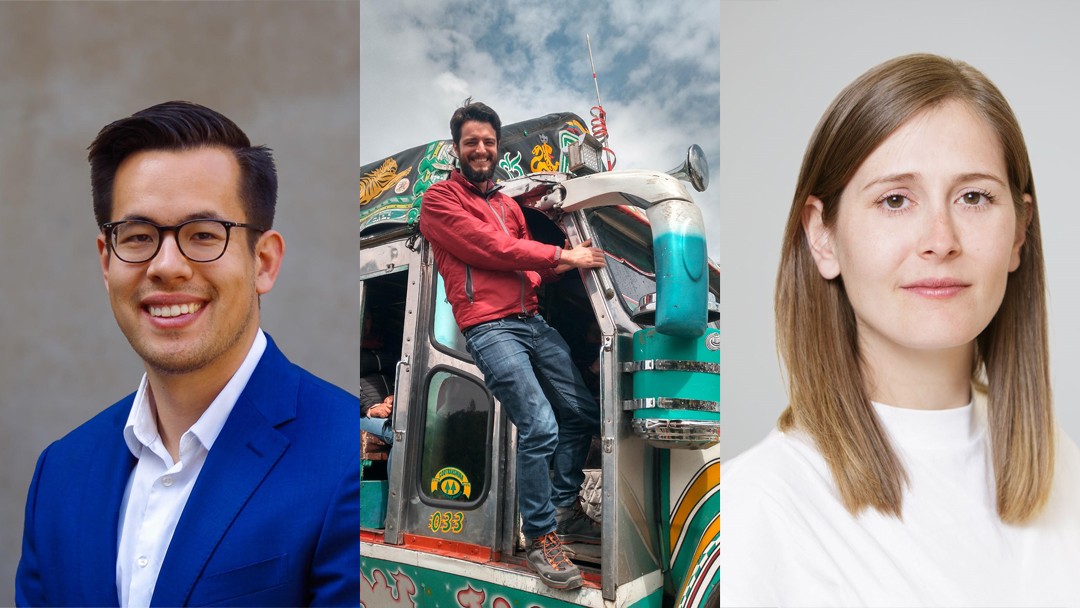News from 2020-07-20 / KfW Development Bank
KfW and the Verein für Socialpolitik award the renowned sponsorship prize recognising young development researchers

For the eleventh time, KfW Development Bank and the Research Group on Development Economics at the Verein für Socialpolitik have awarded the sponsorship prize for practice-oriented development research. The award recognises three scientists whose PhD theses superbly combine scientific excellence and practical relevance.
“KfW sees science as a strong partner that helps us to interrogate our work, evaluate it and constantly improve in order to keep meeting our own high quality standards going forward. With the sponsorship prize we want to encourage the dialogue between science and practice that is so important,” said Prof. Dr Joachim Nagel, member of KfW Group’s Executive Board.
“KfW’s sponsorship prize has become a renowned and highly respected award among young development researchers in German-speaking countries. The requirement for the prizewinners to combine scientific excellence with practice-oriented research highlights exactly what this is all about and creates an incentive for which we are very grateful to KfW Group,” said Prof. Dr Michael Grimm, Chair of the Research Group on Development Economics at the Verein für Socialpolitik.
First prize goes to Dr Sebastian Tonke for his thesis in the field of behavioural economics, in which he investigates the effectiveness of simple and cost-effective interventions (“nudges”) in protecting water as a resource. The work delivers relevant findings about households’ willingness to pay and save, and thus about sustainable operation of water infrastructure. It also helps readers to better understand “nudges”. These are “nudges” towards behavioural changes and have huge potential, especially for those sectors where traditional policy instruments, such as bans or regulation via pricing mechanisms, can only be used to a limited extent. “Nudges” became generally known in 2017 when Richard H. Thaler was awarded the Nobel Prize for his research into them. Sebastian Tonke completed his PhD at the University of Cologne and is now conducting research at the Max Planck Institute for Research on Collective Goods in Bonn.
Dr Bosco Lliso, a researcher at the Basque Center for Climate Change in Bilbao, has been awarded second prize. His thesis on environmental economics, completed at the University of Osnabrück, looks at the effects of fairness-related considerations when designing “Payments for Ecosystem Services” approaches. These incentivisation mechanisms, which are being used increasingly frequently, offer financial compensation to people who provide or maintain important ecosystem services. One example is residents of a nature reserve who are economically dependent on the flora and fauna that need protection. The results of the research challenge the widely-held view of fairness and effectiveness as opposites, and once again highlight how important it is to empirically test the validity of common, theory-based opinions.
Third prize went to Dr Cara Ebert (RWI Essen) for her thesis on the economics of development and healthcare. The researcher, who completed her PhD at the University of Göttingen, investigates how the preferred sex pre-birth impacts children’s cognitive development prospects. Ebert also uses randomised control trials to test the effectiveness of measures to prevent iron deficiency anaemia, one of the world’s most common deficiency diseases among children. In doing so, she pays particular attention to investigations into possible reasons behind the failure of common interventions to increase the amount of iron in food, offering important findings with practical implications.
The winners were selected by an independent committee from the Verein für Socialpolitik and KfW. Unfortunately, the awards ceremony, which traditionally takes place at the Research Group on Development Economics annual conference and was originally scheduled for June, cannot go ahead this year due to the COVID-19 pandemic. It will be held as part of next year's annual conference.

Share page
To share the content of this page with your network, click on one of the icons below.
Note on data protection: When you share content, your personal data is transferred to the selected network.
Data protection
Alternatively, you can also copy the short link: https://www.kfw-entwicklungsbank.de/s/enzBWrMC.CR-A
Copy link Link copied